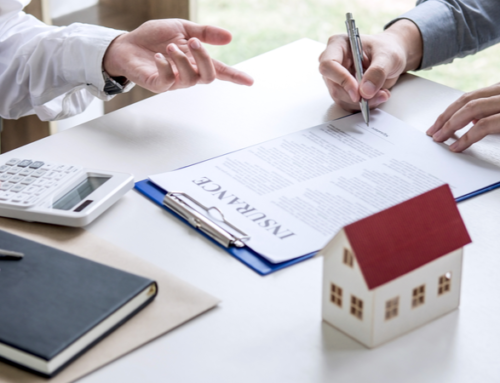Fannie Mae, the secondary mortgage market leader, has decided to change its policy regarding cash-out refinancings.
The change, which goes into effect on February 1, 2003, will require borrowers to pay an additional 0.75 percent if they increase the balance on their loan by more than 2 percent, or $2,000, whichever is less.
That’s an extra $750 for every $100,000 borrowed.
If you’re refinancing a home equity loan and a primary loan into a new primary loan, that will be considered a cash-out refinance.
Why the change? After studying default rates, the company concluded that when homeowners complete a cash-out refinance, and increase their debt by more than 20 percent, they are three times more likely to default on their mortgage than if they increased their debt by just 3 percent or less.
If you refinance your home loan balance and do not take any cash out or take out just $2,000, you will not pay the additional 0.75 percent fee.
(Secondary mortgage market competitor, Freddie Mac, is not planning to make any changes to its refinance rules, so cash out refinances sold to Freddie Mac should be less expensive.)
In addition, Fannie Mae is looking to crack down on serial refinancings – that is, homeowners who may refinance several times in a single year to take advantage of falling interest rates. The company has indicated that it will not permit any refinancings of its mortgages until they have been “seasoned” for at least a year.
That means, you will not be able to refinance a loan that isn’t at least one year old. Many mortgage lenders are concerned that this rule is a serious violation of homeowner’s rights.
(You could think of the “seasoning” rule as being comparable to a prepayment penalty, where you’re charged an extra fee – like 3 percent of the loan amount – if you pay off the loan within a certain period of time. Except with a prepayment penalty, you’re taking the penalty in exchange for lower interest rates. With Fannie Mae’s new refinancing rules, you’ll be limited as to when you can refinance and you may be charged a higher fee for doing so.)
Fannie Mae is hoping to keep loans from going into default. But, it appears they are also interested in boosting profits in a refinancing boom where everyone continues to refinance as interest rates sink to 40-year lows.
The re-refinancings have created chaos in the bond market. As consumers shop around for better deals, the average length of a home loan, which Fannie Mae and its competitor Freddie Mac bundle together and sell as income-producing securities, has shrunk to less than 18 months. (When you’re buying a 10-year security, it messes things up to have it turn over in a year and a half.)
Of course, only a fraction of home loans go into default every year, but Fannie Mae is clearly worried.
A dozen years ago, most consumers took out home equity to either pay for some sort of home improvement project. More sophisticated consumers realized they could borrow against their home equity for less than they’d pay for a car loan or credit card debt.
Over the past decade, the value of homes started to rise dramatically, and more homeowners started using their homes as checkbooks to pay for things. Commonly, home equity is now used to pay off credit card debt, purchase cars (although with zero percent financing widely available right now, that isn’t as popular a reason to get a home equity loan), pay college tuition and purchase second homes.
It’s the “what ifs” that scare lenders. What if home values decrease and homeowners who borrowed up to the maximum end up owing more on their loans than their home is worth? What if interest rates start to rise and those consumers who refinanced with adjustable rate mortgages can’t afford the higher payments?
What if a homeowner who paid off big credit card bill with a home equity loan runs up another huge credit card debt and goes bankrupt because he or she can’t pay it off?
There is a real concern amongst lenders that stretching mortgage lending ratios has led to thousands of new homeowners who don’t have the financial wherewithal to survive some of the inevitable bumps in the road.
In September 2002 foreclosures hit their highest level ever. If this country falls back into a recession, or experiences anemic economic activity over a prolonged period of time, some economists fear that foreclosure number could skyrocket.
Fannie Mae doesn’t necessarily want to discourage refinancings. After all, if no one bought homes or refinanced their mortgage, Fannie Mae and Freddie Mac would go out of business.
But Fannie Mae does want to make sure those homeowners who do take cash out can really afford it. What’s unfair is penalizing millions of consumers who can well afford to borrow against their homes or are taking out cash to improve their properties rather than pay off credit card debt.
Then again, times are tough, even for the big guys. And if Fannie Mae makes a few extra million in profit at the expense of homeowners, well Wall Street might like that, too.
Sept. 30, 2002.



Leave A Comment